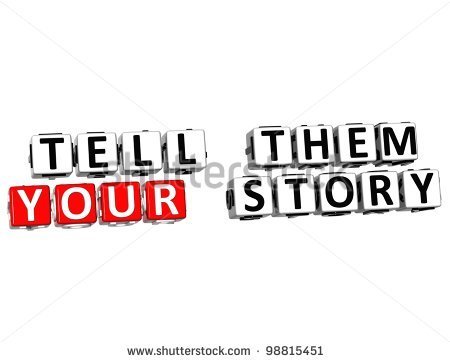In years working with different speakers, we’ve come to realise the importance of a personal narrative. By “narrative,” we refer to the story that we tell believe about ourselves, our experiences, and everything that we’ve seen and heard.
We’ve often been amazed at the number of talented individuals who believe that their life experience differs in no part from anyone else’s. Our narrative as individuals often revolves around the things we tell ourselves about our own lives. It may be that we’re not good enough, our experience not ‘deep’ enough or perhaps we’ll never succeed in business because we simply ‘don’t have what it takes’. These are all common things which we’ve often heard whether they ever be uttered out loud.
This also works in reverse too, the story that we believe which actually affirms – that we’re professionals, that we’re qualified to do what we’re doing or that our life experience provides us with the perfect basis.
Collective Narrative
Something we’ve become interested is the idea of collective narrative. What’s the story that organisations believe about themselves? Some would question if that’s even possible, what we mean is are organisations living and breathing organisms?
Yet, if we really think about it…they are in many ways. Any organisation is a collection of people from different backgrounds. We speak of organisation wealth as being the ability to pull together people from vastly different backgrounds into a cohesive whole. It’s this idea of cohesion where we collective narratives are developed and become solid. The story which the company founders and employers tell themselves, whether or not this is ever articulated verbally it runs through the company, in everything do, say and create.
In recent years the term ‘Start-up’ has been used to describe the act of starting out. Years ago that term would have applied almost exclusively to companies launching within the tech space. You know…collectives of creative coders, working out of some non-descript garage somewhere aiming to build huge and disruptive technologies.
It’s now amazing to see how this term start-up can now be applied to almost any sector regardless of size or specifics. Instead of signifying the use of technology, the term start-up has become a ‘ready made’ narrative generally equating to the following;
- Underdog
- Disruption
- Battling against the odds
- Contending with financial constraints
In many ways this has been great, it’s provided a ‘container’ for many of the similar business challenges and obstacles we come up against/face on a daily basis. No longer is the idea of being an underdog something we must be shamed by; instead it’s become a badge of honour.
Yet for all this evolution, narratives often provide a limitation a certain way of thinking which often defines people, places or organisations. If we take a look at the limitations of the start-up narrative we can often spot these limitations;
- Youth – not all start-up owners are dorm-based college students
- Not all start-ups are necessarily underdogs
- Not all intend to be game-changing businesses
- Not everyone intends to raise billions from famous VC’s
We are sure we’ve all brushed up against these limitations in both are personal and professional lives. They may make us uncomfortable, they may spark a feelings that somehow we don’t quite ‘fit’ wherever we find ourselves.
It’s here that the work can really begin. We’ve worked with countless professionals in helping craft new narratives, uncovering new insights on the stories that they tell themselves and their organisations.
There are many stories out there, many ready made….if you could choose your own, what would it be?

